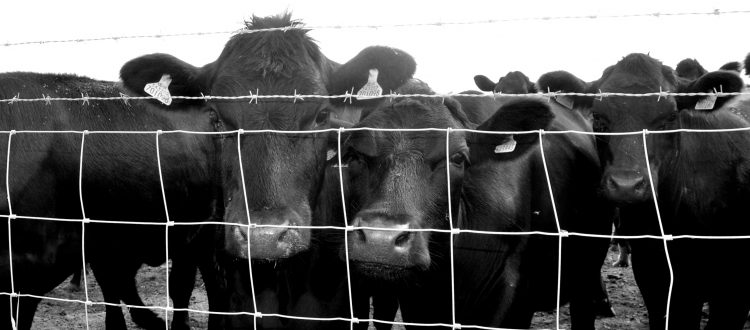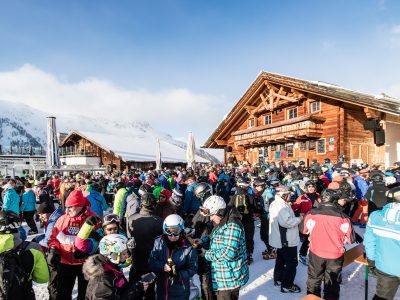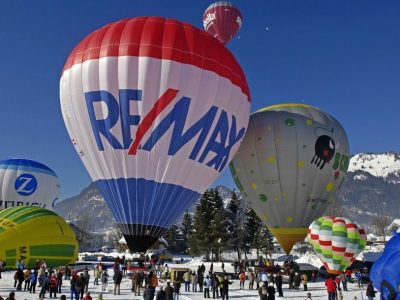Making your holiday more sustainable
Combatting environmental issues has never been more salient. Fortunately, neither has it been more prevalent. Greater transparency in the practices of major corporations has led to a new breed of consumer; one that boycotts Nutella for its palm oil content and combats plastic straws with militant resolve. Whilst making ‘ethical’ purchases is by no means a new concept, the global recognition of such efforts is. Naturally, the markets that serve those affluent enough to be concerned with the planet’s well-being reflect this. Travel is a prime example, with tour operators offering a range of incentives for guests that make more eco-friendly choices and discontinuing attractions and practices that have been deemed unsustainable or unethical. Whilst the market for eco-friendly travel gains traction, it remains true that the majority of trips abroad are inherently detrimental to the planets well-being. Alpine travel is no exception; indeed, we would probably ski decidedly slower if it wasn’t for the weight of the environmental burden we bare by taking a trip to the mountains. Take a look at a few ways in which a holiday abroad can be more environmentally responsible.
Since transport is the greatest contributing factor to the ski industry’s environmental impact, accounting for 73% of the emissions associated with ski resorts, it is the obvious place to make change[1]. Taking a coach to your chosen ski destination rather than flying produces 83% less carbon dioxide, which translates to 280 fewer kilograms of carbon dioxide entering the atmosphere2. To put that into context, it’s the equivalent emissions output of boiling 18,667 kettles or watching 2,091 hours of TV[2]; a typical weekend at home for me. A train journey to the Alps is also more environmentally friendly than a trip by car or plane. Boarding the train at London St Pancras, travellers change in Paris before taking the appropriate service to their chosen resort (transfers are often needed on arrival) with the journey time from the French capital rarely exceeding six hours. Travel by train has the added benefit of not encumbering anyone with the responsibility of driving, leaving those making the journey refreshed for the first session on the slopes.
Going on holiday is a fantastic opportunity to experience new food. Turning to a more plant-based diet satisfies both environmental concerns and the urge to try different cuisines. A recent report from the United Nations cited the livestock industry as the greatest threat to forests, wildlife and a stable climate[3]. Keen geographers among us know that forest area must be cleared (often through controlled burns) for raising livestock. This serves as a double-edged sword: the process of deforestation produces greenhouse gases and the subsequent lack of trees compounds the problem as there is less carbon dioxide consuming vegetation to mitigate the increased emissions. Cows then emit methane which is around 30 times more effective at trapping heat than carbon dioxide. Holidays offer the opportunity to try new recipes that are more environmentally sustainable or opt for vegetarian or vegan menus, offered by a number of tour operators.
Carbon offsetting is the process of compensating for the impact of carbon emissions by investing in equivalent carbon saving elsewhere. Projects range from the innovative – such as introducing clean water sources to developing communities so emissions are not consumed through water sterilisation – to the obvious, simply planting more trees. There are companies which provide carbon offsetting services; customers can calculate their annual emissions before investing in an initiative, be that reforestation projects or hydroelectric energy schemes. For those looking to take carbon offsetting into their own hands, one tree removes 22 kg of carbon dioxide from the environment per year; driving a Volvo XC90 from London to Geneva and back produces 440 kg of carbon dioxide so 20 trees would need to be planted and nurtured just for the travel to be carbon neutral[4].
Plastic has gained international condemnation for the environmental strain it leaves on the planet. However, plastic is not the key perpetrator, irresponsible companies and consumers are. To this end, actions as simple as taking a reusable water bottle up the mountain, keeping packed lunches in tupperware rather than foil or clingfilm and shopping from local markets (that are less likely to use excessive non-biodegradable) packaging can make a world of difference. The final point has the added benefit of reducing the number of ‘food miles’ of a meal and therefore how many extra emissions it has produced, all whilst supporting local businesses. Similarly, with sentiment for sustainability on the rise, packaging-free stores are opening across the world. Patrons bring their own containers and purchase the quantity they need, reducing both plastic and food waste. Such stores are on the rise throughout the UK however countries, like France, are ahead of the curve on matters of environmental sustainability and as a result, packaging-free stores are more common. Choosing such a store over a typical supermarket simultaneously supports a small business conscious of its environmental footprint and reduces plastic waste.
To summarise: avoid flying when possible, eat less meat (particularly beef), try and offset carbon emissions and use plastic responsibly.
[1] ‘A case study regarding the carbon footprint for one day trips to different ski destinations in the Jämtland region.’ By Hanna Koloszyc, Mid Sweden University, Östersund, 2016
http://www.diva-portal.se/smash/get/diva2:1092401/FULLTEXT01.pdf
[2] http://www.snowexpress.co.uk/about-us/the-environment
[3] ‘Climate change and livestock: Impacts, adaptation, and mitigation’ by M. Melissa Rojas-Downing, A. Pouyan Nejadhashemi, Timothy Harrigan and Sean A.Woznicki, Climate Risk Management, Volume 16, Pages 145-163, 2017 https://www.sciencedirect.com/science/article/pii/S221209631730027X
[4] Emissions and carbon offsetting facts generated by https://www.carbonfootprint.com/calculator.aspx














